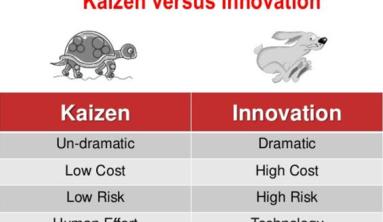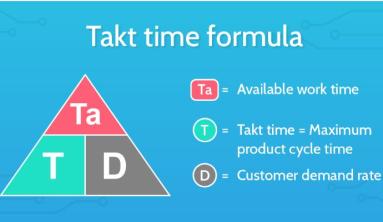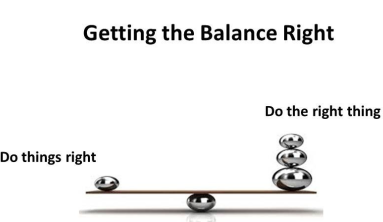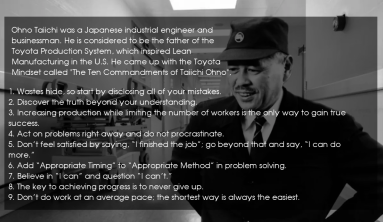Table of Contents
- What Does Managing Expectation Mean?
- When Are Expectations Important?
- What Are The Steps To Managing Expectations
- The Consequences of Expectations Misalignment
- Key Take-Aways To Effectively Manage Expectations
Managing Expectations: Clarify to NOT rectify

Have you ever been frustrated by someone getting upset with you for not meeting their expectations? or disappointed by someone not meeting your expectations?
I'm sure that's happened to all of us at some point in our life, but we didn't know how to handle the situation. And more often, people expect more than less.
Expectation management is an essential skill for anyone, and it's something you can take into all areas of your life — in business, in social situations, or your personal relationships.
Let's talk about what it is, how it affects your business, and how you can use it to improve communication and avoid unnecessary conflict.
What Does Managing Expectation Mean?
Expectation management is a practice in business that informs clients, customers, and shareholders of possible outcomes. It is most useful when the result is likely to be disappointing or a surprise to the other party.
It is a strategic process that sets the right expectations in a way that produces the desired outcome.
It builds credibility and trust with stakeholders, reduces tension between the company and customers, improves alignment with internal teams, and increases the efficiency of your organization.
When Are Expectations Important?
Expectations matter that is why everyone sets them. When we meet friends for lunch, we expect them to show up on time. If they don't, we're disappointed or even angry if it happens too often.
The same holds true in the business world. Businesses have built up trust with their customers over the years based on their commitments to the quality of the services or products they provide.
Even "informal businesses" like handymen and landscapers face a common problem of handling client expectations when faced with competition, limited resources, and busy seasons.
Because organizations are driven by people rather than technology, no matter how well you've researched your market, you can't predict exactly what will happen when you make a promise.
The best time to set expectations is before either party commences an activity.
For example, if you are hiring an employee, you should set their expectation of pay and hours before they begin work and let them know what that exactly means.
The important thing here is knowing how to set the right expectations and manage them effectively to ensure a positive result.
What Are The Steps To Managing Expectations
Know Your Audience
When people know what to expect, they're better able to move forward with their plans without feeling blindsided by unexpected challenges or disappointments.
It's important to make sure everyone knows what to expect about certain outcomes and events because the consequences of failing to meet those expectations can be disappointing.
Knowing your audience is vital because clients' expectations might, and often are, different from coworkers' expectations.
You need to use the right communication channels and tools and the message that speaks to each stakeholder.
Put It All On The Table
It is crucial to give as much information as possible. It does not mean to over-communicate and miss the essential. It is all about providing as much detail and data pertaining to the matter at hand with a focus on clarity and precision.
You should avoid making any assumptions because, as human beings, we have many biases and tend to assume a lot in our interactions with others.
You should present any piece of information that would interest the stakeholders by avoiding as many assumptions as possible.
Exercise Empathy
You have certainly heard that great leaders need to be empathetic. The idea here is to be realistic while telling people what you need from them.
It does not mean that you should not strive for excellence or set high standards and expectations.
It merely means that you should consider the reality of things and the context in which you are.
Many people fail this process by setting blurred and unrealistic goals, which end in disappointment.
When the objective is unclear, it is much easier to have unrealistic expectations because you end up telling yourself what you wish to happen without actually clarifying what it is.
Know When to Say What
The key is to set expectations at the beginning and not wait till the end of the process.
In a corporate setting, let your co-workers know what results you are looking for and how long it should take. Then make sure they understand precisely what you're expecting from them.
If there is more than one issue or concern, break the situation down into an actionable plan that covers everything that needs to be addressed. Be articulate and communicate as much as possible to avoid surprises and the unrealistic expectations trap.
Set Clear Objectives And Priorities
Goal setting is key here. Even though it is a good idea to set high expectations, it goes without saying that expectation management also includes setting priorities in order to get a certain outcome.
We should avoid double duties and ensure that tasks are clear, concise, and add up to be mutually supported.
The focus here is to set outcomes, boundaries, and key deliverables.
When working in a team, for instance, each team member should have a sense of what success looks like and how the whole team fits into that future goal.
Having high expectations for your organization does not have to lead to a culture of stress or anxiety. By embracing realistic goals and improving transparency about the true capabilities of the team, you can set your employees up for success.
Provide Measurable Goals
To Manage expectations doesn't mean sugarcoating reality — it means being truthful while also providing context that allows others to prepare for the time ahead.
The key to managing expectations, whether on a personal or professional level, is to set goals that are challenging but not out of reach.
Start with small goals and make steady progress toward them. This will keep you or others motivated and build confidence over time.
If there are any details or decisions that need to be made upfront, get it all agreed upon before moving forward.
This makes sure both of you are speaking the same language as far as expectations go and will keep both parties happy when the work is completed and delivered.
Manage What Is In Your Control
When it comes to managing expectations, a great leader also has to keep in mind that not everyone is like them. Everyone may want success, but they do not all define success in the same way or have the same expectations. Given these differences, only effective communication will get you what you desire and need from others.
In reality, you do not have power over what the outcome will actually be; the best thing you can do in the present is to align their expectations with your outcomes.
Ask them to say what you want in their own words.
Be honest when setting expectations. Avoiding the truth will only make people feel like they can't trust you and may result in them not doing business with you again in the future.
Be sure to explain everything that is going on in detail so that there are no questions left unanswered about what is happening or what needs to happen next.
With regards to a client, address any concerns they may have once they understand what is going on. If they have a concern or question, address it immediately so that any misunderstandings can be cleared up before moving forward with the project. Remember to follow up after the project has been completed to ensure that everything went according to plan and that they are happy with the outcome.
Check Progress Regularly
Expectation management is not just setting the right expectation and leaving everything until the end and hoping everything would go as expected. You need to constantly monitor by following up with the relevant stakeholders.
When you find yourself disappointed in the performance, the person underperforming may have one of four things wrong.
1) They have the wrong expectations about the task.
2) They do not know what success looks like for the task.
3) The leader has not managed their limitations and provided them with an opportunity to succeed.
4) You have assigned either too much or too little for that individual and now they are lost.
Confidence in Self-Efficacy
it is hard to manage expectations if you don't know what to expect yourself.
You have to convince others of your vision, setting the tone for a successful relationship that can be built around expectations management.
Let's take the example of setting up an effective training program for a team. Your employees need to trust that you know what you are doing and that you care about their development.
The best way to do so is by building up confidence in self-efficacy. Getting people involved in achieving results creates high levels of self-efficacy.
The Consequences of Expectations Misalignment
One of the biggest problems with not managing expectations is that it causes performance decline.
The core issue with not managing expectations lies in the fact that you set your employees up for failure.
Drastically underestimating the amount of time it takes to complete tasks or projects makes employees feel like they need to put in extra effort merely to get by.
When there is a significant mismatch in expectation and perceived performance, the result may be a negative feeling. This can lead to employee dissatisfaction and high turnover.
They often go on overworking themselves and deliver a poor outcome.
Expectations can also cause people to complete tasks faster and more accurately if those expectations match their perceived level of skill.
When you set expectations, and the other party is confident about their ability to meet the requirement, they are more likely to hold up to your explications.
Managing expectations is a two-way street. Both the leader and the employee need to create an environment that enables the individual to fulfill his/her role. And it needs to be a positive experience for all concerned.
Leaders who are not forthcoming about their expectations or set arbitrary or unrealistic ones are likely to find themselves constantly dealing with employee complaints about feeling unappreciated, misunderstood, or undervalued.
It does mean you should feel guilty setting your own expectations, whatever high they might be, but they should not be unrealistic.
Employees who are not forthcoming with their needs and concerns will soon find themselves out of sync with the business, their productivity suffering, and their relationships with their managers will deteriorate.
It's important to be clear upfront about what both parties expect from each other. For example, is the employee expected to...
...work a set number of hours? ...be available on an "on-call" basis? ...have a minimum of relevant experience? ...meet certain performance objectives? ...accommodate flexible start times? ...be willing to travel at short notice?
Good to Know: Writing is shown to improve exam is performance when students write their expectations before the exam.
A person's expectations have a significant effect on what they actually experience. Expectations are important because they influence the extent to which people approach an activity with a positive or negative attitude, which affects their performance.
Over a decade, the Pygmalion effect, well-known in social psychology, has been documented in many studies, including Rosenthal's study of a nursery school where teachers were told that some of the children were intellectual "prodigies" and would bloom intellectually much earlier than average.
As a result, Rosenthal found that the children designated as "prodigies" did indeed perform better.
Similarly, elementary school teachers who expect their students to be difficult or to misbehave tend to elicit negative behavior from those students.
But when teachers expect good behavior from their students, those students tend to behave better. Another study showed how important expectations are when it comes to evaluating job performance.
Evaluators who were told that an employee had performed poorly judged that employee more harshly than evaluators who were told the same employee had performed well.
Expectations also play an important role in the initial phase of romantic relationships. Research has shown that early in relationships, couples tend to be overly optimistic about one another and are more likely to idealize their partners' qualities.
Key Take-Aways To Effectively Manage Expectations
Takeaway 1: Managing expectations is an ongoing process that involves you consistently monitoring and communicating what is expected in a situation.
Takeaway 2: Measurable goals are important, but they only work with regular communication. You should also set up systems to measure qualitative benchmarks, deadlines, etc.
Takeaway 3: Consider four modes for managing expectations. 1. Align behaviors and strategies to their expectations 2. Encourage internalized accountability – help employees to align their behaviors and strategies with their collective expectations 3. Eliminate destructive external control – eliminate unnecessary or unfair scapegoating and remove others' excessive control over employees' actions and decisions 4. Seek high levels of transparency through continuous feedback and dissemination of information – to achieve an optimal level of expectation management
All in all, the most important aspect of managing expectations is being transparent with people from the very beginning. Don't over-promise and under-deliver, and they won't do the same because this can cause major damage to your credibility and ultimately make your job much harder as a leader.
Source: www.insighteurs.com






